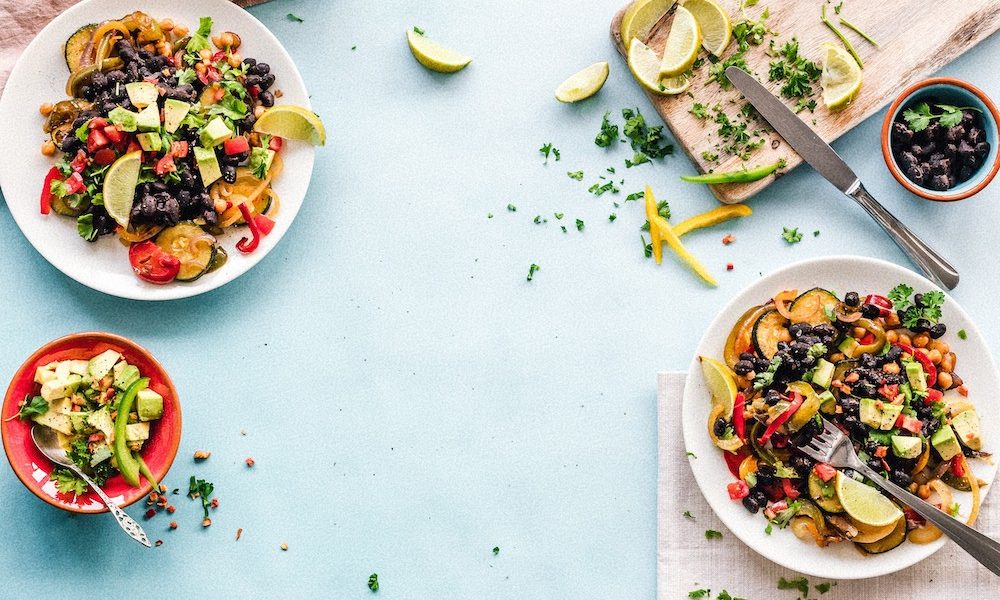The act of dieting has become synonymous with good health, making it difficult to separate the two from one another. Challenge the way you look at health, and include the other facets that help you sustain it in the long run.
BY: PAIGE SMATHERS, RDN, CD
There has been a growing counter cultural movement promoting body positivity, ditching diets and healing your relationship with food. I should know, I’m one of many clinicians and activists pushing for a much-needed change with how we talk about bodies and food.
We’re asking folks to take a closer look at the science, their lived experiences, and their precious lives. We are asking them to question:
Do diets “work”?
Do diets actually promote health?
Do the premises that build the logic behind diets hold up to scrutiny?
The answer to all of those questions is a big huge no. There isn’t evidence that any diet consistently “works” long-term. They tend to be unsustainable, short-lived and take a toll on both your mental and physical health. All of that is why there are so many folks pushing for a paradigm shift with food and bodies.
Unfortunately, this push to challenge diets has created confusion for people.
Some interpret the messages from the anti-diet community (not a term I personally love to use, but I’ll use it here for the sake of clarity) as saying health doesn’t matter, or that it’s wrong to want to care for yourself well.
This can, at times, create the opposite effect in people: a sense of shame when choosing foods typically deemed as “healthy” foods in the diet mentality.
In other words, I regularly have people in my office asking me if it’s okay to eat a salad. Yes, it’s okay to eat a salad. And, I want to explore your why. Are you eating the salad to punish yourself? Or, are you choosing it because it sounded good, it fit your hunger level and it felt like the choice was coming from a place of true self-care?
The confusion lies here: many people confound diets with the word healthy.
Many people assume that diets are healthy, and that not dieting is inherently not healthy. Let’s set the record straight: diets aren’t healthy. The rigid, rules-based, extrinsically motivated food programs do not promote long-term health or wellbeing.
When folks are promoting a non-diet framework such as Intuitive Eating, they aren’t saying that vegetables are bad or wrong, or that donuts are inherently good. What’s being said is that all foods can fit in a healthy, balanced life. It’s an emphasis why the inordinate stress you feel when you eat a cookie is far worse for your health than any cookie could ever be.
The fact is, the most magical thing happens when you stop dieting and give yourself permission with food. You actually have the headspace to start asking yourself the right questions around food that help you meet your individual needs. When there’s no morality around food, you learn to ask questions like:
What sounds good? What would satisfy me? How hungry am I?
When food is charged with good vs. bad, right or wrong, should or shouldn’t (as the dieting mentality promotes), you don’t have any room in your thoughts to ask yourself nurturing, grounded questions about your food decisions.
However, there is such a thing as caring for your health too much — which ironically, isn’t healthy at all. There is balance to be struck with caring about health. Ideally, food fits to support the life you want to live, and your most treasured values.
I approach the work I do as a dietitian from the non-diet angle, because it’s the best way I’ve found to help people settle into healthy, balanced and positive self-care. I approach my work this way because I care about my clients‘, students‘, readers‘ and listeners‘ health.
My hope for you is that food remains enjoyable, and promotes your health and wellbeing in a way that allows you to engage in the things you hold most dear.
That’s when you can find balance in caring for your health —
But not too much.
Adapted from the original article.
HEADER IMAGE: ELLA OLSSON
Paige Smathers, RDN, CD is a nutrition therapist based in Salt Lake City who helps individuals find positive ways to overcome struggles they experience with food and body image. She specializes in practical, down-to-earth solutions for those in eating disorder recovery and chronic dieting through a weight-neutral positive approach. Paige hosts the popular Nutrition Matters Podcast and runs her private practice, Positive Nutrition.

